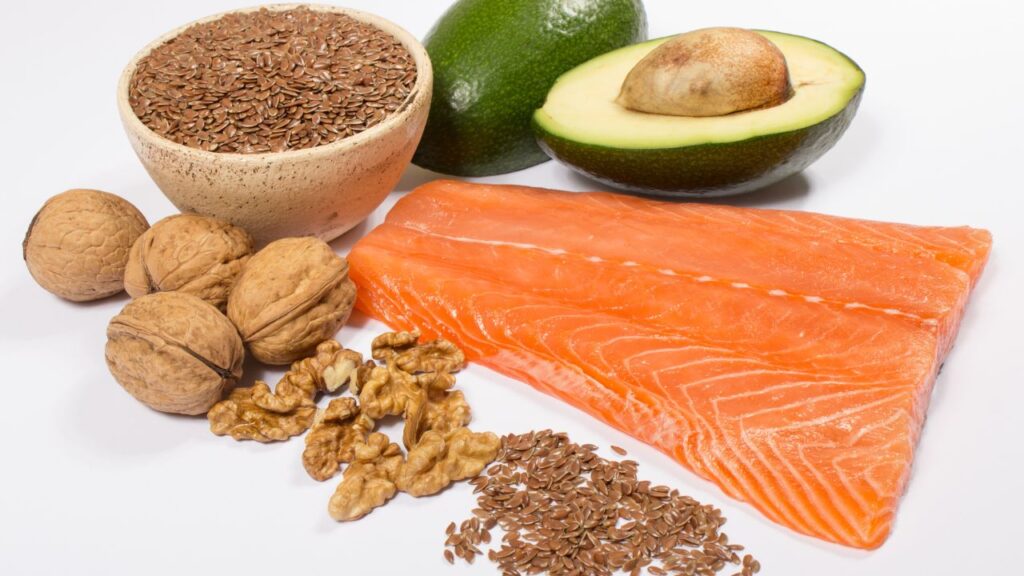In the hustle of daily life, we often overlook the profound impact our diet has on the quality of our sleep. Welcome to a journey of Exploring the Connection Between Diet and Sleep. This article delves into the nuances of how what we eat can significantly influence our nightly rest, providing valuable insights and actionable tips for a rejuvenating sleep experience.
The Basics of a Sleep-Inducing Diet
Exploring the Connection Between Diet and Sleep
Embark on a quest to understand the foundations of a sleep-inducing diet. From melatonin-rich foods like cherries to magnesium-packed nuts, discover the nutritional secrets that can lull you into a deep slumber.
The Culprits: Foods That Disrupt Sleep

Steering Clear: Foods that Hamper Your Sleep
Not all foods contribute positively to our sleep. Dive into a comprehensive exploration of the dietary culprits that disrupt our sleep patterns. Uncover the hidden enemies, such as caffeine and spicy dishes, that might be sabotaging your rest.
Balancing Act: Crafting the Ideal Bedtime Snack
Midnight Munchies: Crafting the Ideal Bedtime Snack
Hungry before bedtime? Learn the art of creating a bedtime snack that supports, rather than hinders, your sleep. From banana-infused treats to herbal teas, find the perfect balance to satisfy your cravings without compromising your rest.
The Science Behind it All
Cracking the Code: The Science Behind Diet and Sleep
Delve into the scientific intricacies of how specific nutrients impact your sleep cycle. Understand the role of serotonin, tryptophan, and other key elements in promoting a restful night’s sleep. Unearth the secrets backed by scientific research.
Exploring the Connection Between Diet and Sleep
FAQs
Can certain foods really help me sleep better?
Absolutely! Foods rich in tryptophan, like turkey and dairy, promote the production of sleep-inducing hormones, enhancing your overall sleep quality.
Are there specific foods to avoid before bedtime?
Indeed, steer clear of caffeinated beverages, spicy foods, and heavy meals close to bedtime. These can disrupt your sleep patterns and lead to restlessness.
How does hydration impact sleep?
Proper hydration is crucial for good sleep. Dehydration can cause snoring and obstructive sleep apnea, affecting the overall quality of your rest.
Can a lack of certain nutrients lead to insomnia?
Yes, deficiencies in magnesium and vitamin D, for instance, have been linked to insomnia. A balanced diet ensures you get the necessary nutrients for optimal sleep.
Is it advisable to eat right before bedtime?
Ideally, it’s recommended to have a light snack if you’re hungry before bedtime. However, heavy meals may cause discomfort, affecting your sleep.
Are there specific foods that can help with insomnia?
Yes, foods like almonds, kiwi, and fatty fish are known to aid in combating insomnia due to their sleep-promoting properties.

How are diet and sleep connected?
Quality sleep and a balanced diet share a symbiotic relationship. The nutrients you consume can influence the quality of your sleep, and conversely, the amount and quality of sleep you get can impact your dietary choices. Key components like melatonin, tryptophan, and magnesium found in certain foods play a crucial role in regulating sleep patterns.
What is the relationship between diet, exercise, and sleep?
The trio of diet, exercise, and sleep is interconnected in maintaining overall well-being. Regular exercise contributes to better sleep quality, while a balanced diet supports energy levels for physical activity. The synergy between these elements fosters a healthy lifestyle, promoting optimal sleep and overall health.
Why is sleep important in diet?
Adequate sleep is vital for various physiological processes, including metabolism and hormone regulation. Lack of sleep disrupts these processes, leading to imbalances in hormones responsible for hunger and satiety. This imbalance can result in overeating, making sleep an essential factor in maintaining a healthy diet.
Does diet change affect sleep?
Yes, alterations in diet can impact sleep. Consuming heavy meals close to bedtime or indulging in stimulants like caffeine can disrupt sleep patterns. Conversely, adopting a diet rich in sleep-promoting nutrients, such as tryptophan and magnesium, can positively influence the quality of your sleep.
What is more important: sleep or diet?
Both sleep and diet are crucial for overall well-being, and their importance cannot be understated. They complement each other in maintaining physical and mental health. Striking a balance between a nutritious diet and sufficient sleep is key to achieving optimal health and vitality.
What foods promote sleep?
Certain foods aid in promoting sleep due to their unique nutritional composition. Foods rich in tryptophan, like turkey and dairy, contribute to the production of sleep-inducing hormones. Additionally, magnesium-rich foods such as nuts and seeds can have a calming effect, promoting a restful night’s sleep.
How can I s leep naturally?
leep naturally?
Adopting natural sleep practices can significantly improve your sleep. Establish a consistent sleep schedule, create a comfortable sleep environment, limit screen time before bed, and practice relaxation techniques like deep breathing or meditation. These natural habits contribute to better sleep quality.
How to improve your sleep?
Improving sleep involves cultivating healthy sleep hygiene. Besides maintaining a consistent sleep schedule, limit caffeine and alcohol intake, engage in regular exercise, and create a relaxing bedtime routine. Prioritize sleep as a crucial component of your overall health and well-being.
What causes a lack of sleep?
Various factors can contribute to insufficient sleep, including stress, anxiety, poor sleep hygiene, medical conditions, and lifestyle choices. Identifying and addressing the underlying causes, along with adopting healthy sleep habits, can help combat the issue of inadequate sleep.
Conclusion
As we conclude our journey Exploring the Connection Between Diet and Sleep, it becomes evident that our dietary choices play a pivotal role in the quality of our sleep. By making informed decisions about what we eat, we can pave the way for restful nights and energized days.
